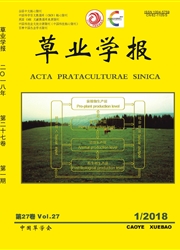

 中文摘要:
中文摘要:
干旱是影响农作物产量的主要胁迫因素之一。高通量生物技术的使用促成了新的干旱胁迫相关基因的发现,一些重要基因已转化到植物中,通过专一性或广谱性地应答路径来调节其干旱耐受性。最近的一些研究进展,进一步加深了对植物通过调控干旱相关基因的表达而抵御干旱胁迫的理解,并对植物干旱胁迫的复杂调控网络有了更深刻的认识,同时逐渐探索出一些具体的植物抗旱基因工程研究的途径。本文主要综述了信号分子、转录因子、小RNA分子、渗透调节分子、多胺类分子,活性氧清除分子方面的基因工程研究进展,并对其研究中存在的问题及应用前景进行了讨论。
 英文摘要:
英文摘要:
Drought is a major abiotic stress that significantly reduces crop yield.The use of high throughput screening techniques has accelerated the identification of the gene series that are involved in drought tolerance.Some of the more important genes have already been transferred into plants by genetic transformation in order to activate specific or broad pathways related to drought tolerance.More recent advances have improved our understanding of drought-resistant regulation by controlling the expression pattern of drought-tolerant genes.We now better understand the complex regulatory network that regulates drought stress response and so are able to develop practical approaches for engineering drought tolerance in plants.This article reviews these advances in genetic engineering,including such factors as identifying the genes encoding signaling molecules,transcription factors,small RNA and the gene expressions involved in osmotic substances biosynthesis,polyamines biosynthesis and ROS scavenging.Current problems and future applications are also discussed.
 同期刊论文项目
同期刊论文项目
 同项目期刊论文
同项目期刊论文
 期刊信息
期刊信息
